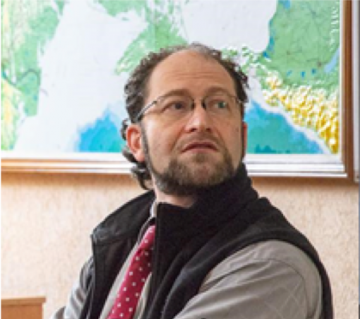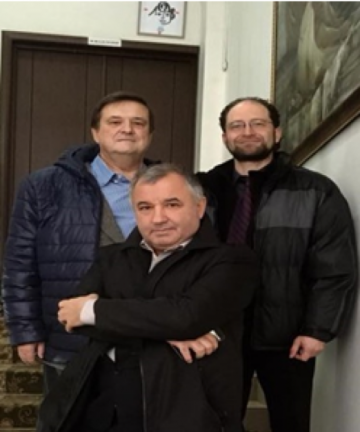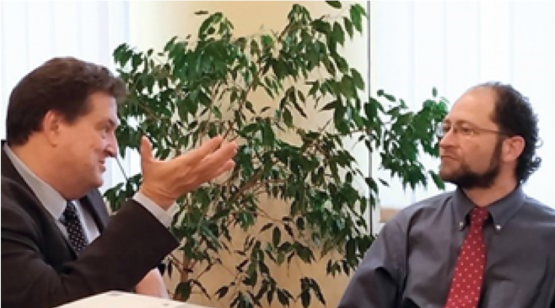US – Ukraine International Collaboration
By Boris Lorberg, MD, MBA
Assistant Professor of Psychiatry and Paediatrics, University of Massachusetts Medical School, Worcester, Massachusetts, USA

Fresh out of high school, I left Kyiv, Ukraine with my family in 1991, to make a new life in the US.
Over quarter of a century later, I came back as a US-trained child psychiatrist. My visit to Kyiv was organized over the span of only 2 months with facilitation by the IACAPAP. The goal of the visit was to exchange experiences and practice models.
Returning to Ukraine as a US citizen, I was ready for a range of possible reactions from my Ukrainian hosts – from suspicious indifference to a controlled warm welcome. What I found instead exceeded all my expectations. The hospitality and genuine interest shown by Igor Martsenkovsky, MD, PhD, Inna Martsenkovsky, MD, PhD, Dmytro Martsenkovskyi, MD, Kateryna Boiarshinova, and dozens of other Ukrainian psychiatrists and psychologists, was simply overwhelming.
Igor Martsenkovsky, MD, PhD, orchestrated my visit. In addition to his extensive research and clinical work at the Institute of Psychiatry, he advises the Ukrainian Ministry of Healthcare, government, and parliament on development of child mental health policies and programs.
I also met with Kateryna Boiarshinova, founder and president of the Independent Association of Psychologists (Ukraine). Kateryna has been engaged in building international collaborations and helping Ukrainian psychologists adopt best practices.
I was able to visit colleagues at the Institute of Psychiatry of Ukrainian Ministry of Healthcare, as well as the Psychology Department of Kyiv Shevchenko National University. I was very impressed by their level of interest in US successes and challenges in the area of child mental health.
Themes and outcomes of our discussion:
- Established a learning collaborative focused on designing a Ukrainian system of residential adolescent psychiatric programs
- Connected Ukrainian colleagues with an international video-conference-based psychiatry lecture series
- Organized and delivered two presentations
- Added AACAP links to Ukrainian websites for resources developed by AACAP, such as Parent Medication Guides and Facts for Families
- Developed a collaborative for 1st Ukrainian child and adolescent DBT train-the-trainer initiative (Francheska Perepletchikova, PhD)
This visit sparked many productive conversations about pediatric mental healthcare. It also disproved my assumption that international health efforts required significant institutional funding and dedicated time away from work. I discovered many opportunities to provide informal policy/clinical consultations and build academic/clinical collaborations with limited expenses.

I returned to the US with a surge of anti-burnout appreciation for the small, everyday luxuries of my healthcare system that I had taken for granted – from access to psychostimulants for ADHD and residential programs for adolescents, to the capacity to work collaboratively as part of multidisciplinary teams. I also came back to my home institution inspired to motivate my colleagues to connect with partners in other countries.

In conclusion, if there is a high level of enthusiasm to collaborate across borders, initiatives such as this can take little time to put together. For my fellow child psychiatrists, my message is this: Is it possible that such a level of interest and readiness to engage is unique to only one country and one child psychiatrist? I believe not. The world is ready for low cost, high tech international child psychiatry collaborations.
In the words of Dr. Andres Martin, “Приєднуйся до мене; Приєднайся до нас:
Join me; join us!”


